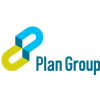Responsibilities include but are not limited to : Responsibilities include but are not limited to :
- Acts as a Leader by advising Research Assistants, Trainees, Phlebotomists, and Safety Staff on proper trial execution based on protocol, Standard Operating Procedures (SOPs), and regulatory requirements.
- Conducts clinical in-person assessments with study participants (including height, weight, blood pressure, physical activity, sensorimotor functioning, DEXA, ultrasound, cognition, etc.)
- Conducts vital signs collection and assessment
- Monitors, records, and report symptoms and changes in study participants conditions
- Completes adverse event and serious adverse event reports and file with regulatory bodies
- Contributes to Research Ethics Board (REB) submissions and communications, including year-end and donor reports
- Responds to and / or assists with on-site emergencies, incidents and accidents, which may involve the provision of Standard First Aid, CPR, the use of an Automated External Defibrillator (AED) and / or the completion of an accident / incident report, when required
- Demonstrates ability to effectively communicate with clients and families
- Qualifications include but are not limited to :
- Completed postsecondary degree in a science or healthcare related discipline, or equivalent work experience.
- Certification as a Clinical Research Professional (SOCRA, ACRP, etc.)
- Current GCP, Health Canada Part C Division 5, IATA certifications
- Phlebotomy certification
- Certification in genetic counselling strongly preferred
- 2-3 years previous research or clinical trials experience preferred and / or a definite asset, particularly with older adult clientele and 3-5 years’ work experience as a Clinical Research Coordinator
- Extensive knowledge about cognitive, brain, and physical aging and the common tools and measures to assess them
- Current GCP and familiarity with Health Canada, FDA, ICH GCP regulations
- Excellent computer skills and ability to adapt to new technologies.
- Knowledge of Freedom of Information and Protection of Privacy Act 1990 (FIPPA) requirements, as well as the Personal Health Information Protection Act 2004.
- Excellent verbal, written, and listening skills.
- Ability to document concisely and appropriately.
- Good client-focused service approach.
- Demonstrated ability to effectively communicate with clients and families.
- Ability to work effectively with a range of stakeholders
30+ days ago









